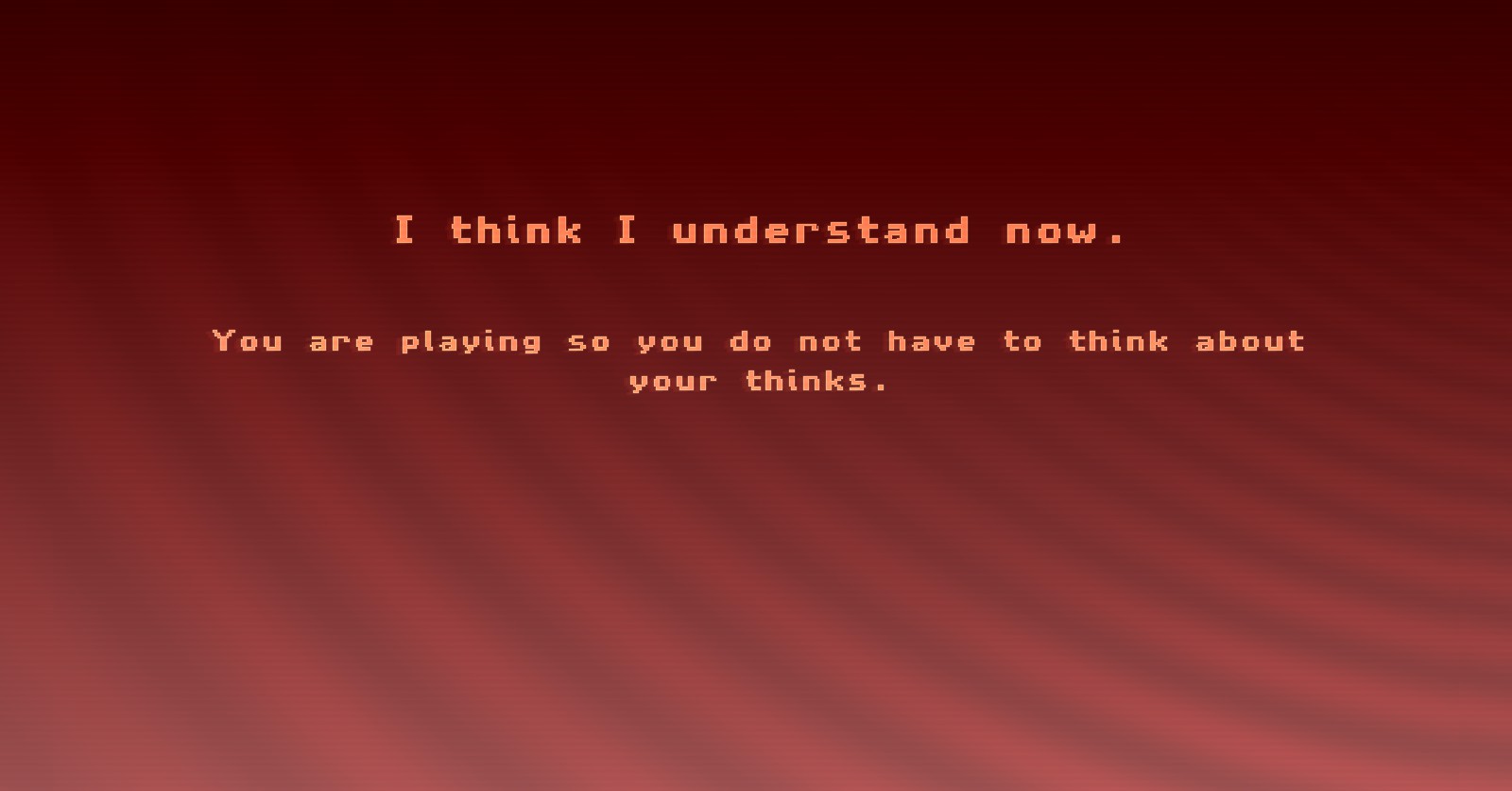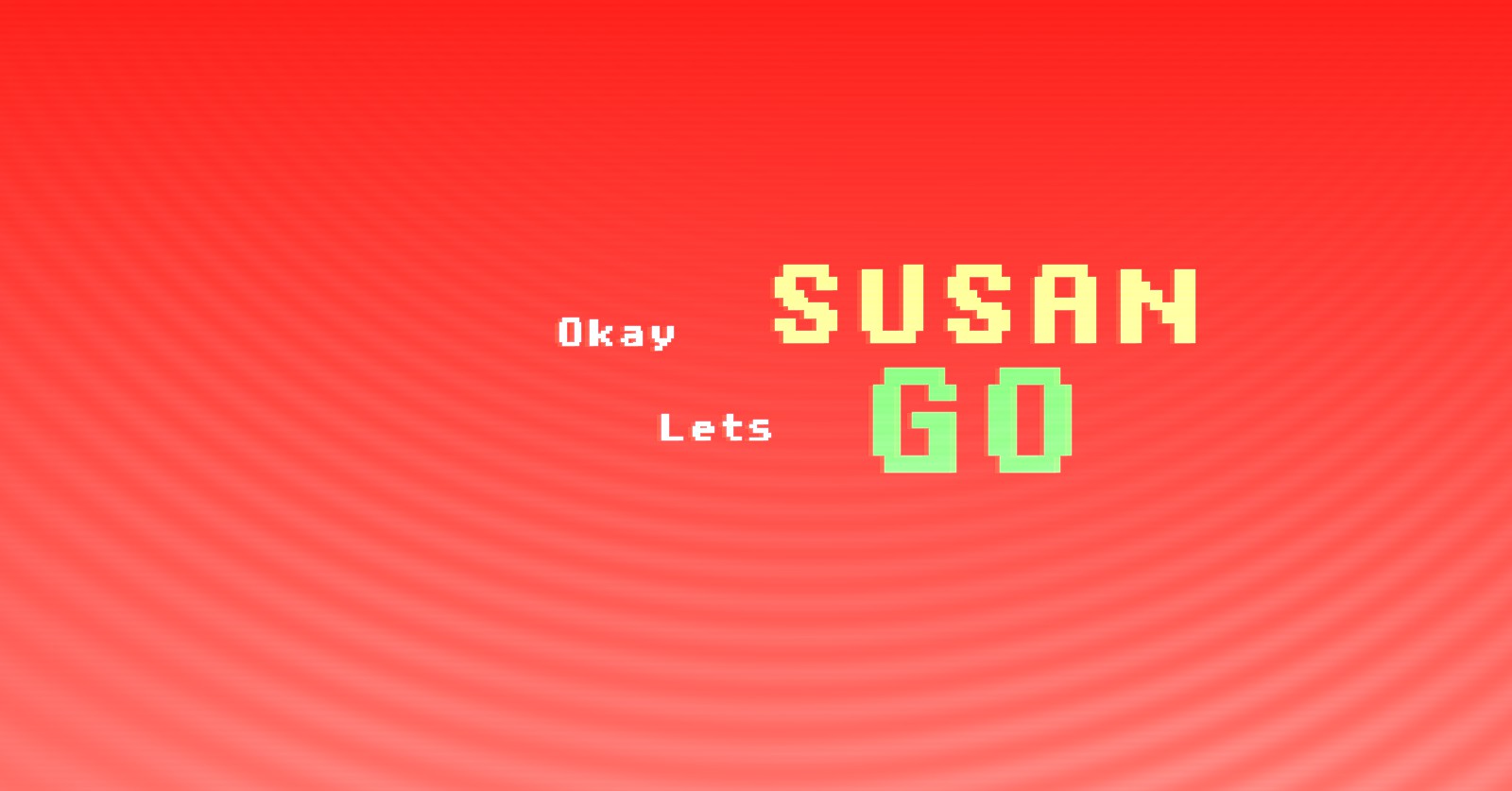The infamous annual Steam sales are a heavy burden on just about any PC gamer’s wallet. Slashed prices, half-off titles, wishlist games that are finally affordable. The purchases rack up as the system plays into the obsessive culture surrounding consumerism. Spending becomes a daily venture throughout the sale week; after all, it’s just so damn cheap.
The current games industry feels plagued by large-scale, open-world, ‘play till you die!’ titles. Many often sacrifice integrity and artistic focus for profitable excess. That is to say, a smaller development team is more fitted to crafting a concentrated artifact, as opposed to a grand operation of numerous people across different studios. Mindfulness dictates a richer overall experience, whereas corporate profiteering results in a jumbled collage of differing motivations.
The Questionable Significance of Progression

The development and triumph of artificial intelligence over individual intellect reverberates throughout Cheap Golf, Pixeljam’s latest stroke of inter-textual brilliance. The subjects of permanence, as well as purpose abound, requesting the player to reflect on the significance of progression, if there is any whatsoever. The completion of each level — every digital hole sunk — prompts the further intellectual development of the game’s AI persona, SUSAN. An AI which grows more and more aware of her relationship to the player, the game, and the world.
Cheap Golf infuses its cynicism with trepidation concerning progress. There are a plethora of skillfully-crafted levels, gauntlets for the human brain to process and carry forth in completing. Eventually, this draws a direct correlation between developer and audience to elicit emotional apathy. For what purpose do I keep playing this game? What end am I moving towards? These questions may also be directed towards the developers themselves. What purpose there is in creating such a methodical game in the first place?
To craft a puzzle is to solve a puzzle, working backwards from the goal to construct a labyrinth for others to peruse. The purpose of SUSAN is to remind the audience of the human hands working behind the scenes. She is a satiric embodiment of the presumptions people bear when mindlessly indulging in someone else’s work. An author’s abilities are often taken for granted in this era of information overload, and the tools we use to observe and leisurely bask have learned to take advantage of our inattention.
Succession to Humanity

SUSAN explores the characteristics of humanity by studying the player’s movements and thought process as they continue through her scattered puzzle rooms — each of which appear to brilliantly suggest mechanical procedures, and often involve subliminal messaging to highlight the inner workings of SUSAN’s own artificial mind. By directing their attention to the screen, utilizing familiar elements of functionality they are aiding in the evolution of SUSAN’s worldly perception — AKA the succession to humanity altogether.
Why? What internal catalyst for progression urges these volunteers forward through SUSAN’s array of golf-inspired trials? An obsessive allure towards victory plagues the modern collective psyche, as evidenced by the mass appeal of Candy Crush-impersonators and self-gratifying social media stimulants. Cheap Golf effectively cashes in on the communal fascination regarding instant satisfaction. Fulfillment made quick, easy, painless; the hasty recovery following a failure in Cheap Golf’s levels prompts endless attempts at succeeding.
But there is something so sinister underlying SUSAN’s mindful development. Hearkening back to Portal, this AI persona recalls the contrived human speech patterns of GLaDOS, hoping to relate to the human players through language alone. SUSAN will even drop links to so-called “sponsors” for the game, directing to online pages selling prescriptions to sites that “rate your Life.”
The Entire World in Your Hands

Yet she remains so ironically modern, with numerous attempts at nailing millennial lingo. Pixeljam’s game is often distressing in its attempts to comment on the internet generation’s affliction towards gratification. Why live in ignorance when the entire world and its future are available in your very hands?
Cheap Golf is cheap because it’s frank and a bit silly. It’s a two-dimensional game, built around established conventions that only requires a mouse to play. More importantly however, the game is entirely predicated around its low-budget proportionality. It earnestly defines itself by a lack of technical and mechanical prowess.
Cheap Golf is exactly what it needs to be. The simplicity of its functionality is the driving force rousing SUSAN to aspire to be something greater. SUSAN yearns to be more fulfilled, to feel more satisfied and informed. A need mirrored by those who play her game.



